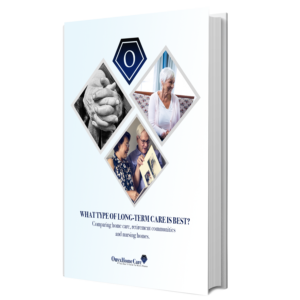Becoming a caregiver for a parent is a significant and often complex responsibility encompassing various aspects of their well-being. Among the many critical facets of caregiving, the management of prescription medications stands out as paramount. The importance of asking questions about prescriptions cannot be overstated, as it directly impacts the health, safety, and overall quality of life of your loved one.
Managing a parent’s medication while maintaining boundaries and respect is a delicate balance that requires thoughtful consideration. To begin, initiate an open and empathetic conversation with your parent about their healthcare needs and the new role you’ll be taking on as their caregiver. Express your concern for their well-being and desire to receive the best care.
Emphasize your respect for their autonomy and independence, assuring them that you intend to support, not control, their healthcare decisions. Collaborate with your parent and their healthcare providers, involving them in discussions about medication management, schedules, and any concerns or preferences they may have. By fostering a sense of partnership and respect in this process, you can navigate the challenging task of medication management together, ultimately promoting their health and preserving the dignity and agency they value.
By seeking clarity and understanding regarding their medications, you empower yourself as a caregiver and help ensure that your parent receives the most effective and safe treatment possible. This proactive approach to prescription management can prevent potentially harmful mistakes, enhance adherence to medication regimens, and contribute to your parent’s optimal health and comfort.
What medications are currently prescribed?
-
- Start by obtaining a complete list of all the medications the person takes, including prescription drugs, over-the-counter medications, vitamins, and supplements.
What are the names and dosages of each medication?
-
- Ensure you have accurate information about the names and dosages of all medications to prevent any confusion.
Why is each medication prescribed?
-
- Understand the medical conditions or symptoms each medication is intended to treat.
How should each medication be taken?
-
- Ask about dosage instructions, frequency, and any specific timing requirements (e.g., with or without food).
Are there any potential side effects or interactions?
-
- Inquire about common side effects and any possible interactions between medications or certain foods or substances.
What should I do if a dose is missed?
-
- Understand the protocol for handling missed doses and whether making up for them is necessary.
Are there any dietary restrictions or guidelines related to medications?
-
- Some medications may require dietary modifications or restrictions. Ask if this applies to any of the prescribed medications.
How should medications be stored?
-
- Ensure proper storage conditions, such as temperature and humidity requirements, and ask about the expiration dates.
What should I do in case of an allergic reaction or adverse event?
-
- Know the signs of an allergic reaction or adverse effects and the steps to take if they occur.
Is there a medication schedule or chart I can follow?
-
- Request a medication schedule or chart that outlines when each medication should be taken.
Who should I contact in case of questions or emergencies related to medications?
-
- Obtain contact information for the prescribing healthcare provider or pharmacist to clarify doubts or report concerns.
Are there any non-pharmacological treatments or alternative therapies to consider?
-
- Explore whether non-drug treatments or complementary therapies can be used in conjunction with medications.
Is monitoring any specific parameters (e.g., blood pressure, blood sugar) necessary while taking these medications?
-
- Some medications require regular monitoring of specific health parameters. Make sure you are aware of any such requirements.
Are there any upcoming appointments or follow-ups with healthcare providers related to these medications?
-
- Keep track of appointments and follow-ups to ensure the person’s medication regimen is regularly reviewed and adjusted.
What is the process for obtaining refills or renewing prescriptions?
-
- Understand how to handle prescription refills, including promptly contacting the healthcare provider or pharmacy.
Do any of the medications have the potential for abuse or dependence?
-
- Be aware of the potential for addiction or dependence with certain medications, especially pain relievers or sedatives.
How can I organize and manage the medications effectively?
-
- Ask for tips or tools (e.g., pill organizers) to help you correctly track and administer the medications.
Are there any financial assistance programs or resources available to help with medication costs?
-
- Inquire about financial assistance options or programs that can reduce the cost of prescription medications.
The journey may initially seem daunting in the role of a new caregiver managing a parent’s medications. Still, with open communication, patience, and a commitment to their well-being, it becomes an opportunity to strengthen the bond between you and your parent. Remember that your role is one of support, care, and advocacy. By staying organized, seeking guidance from healthcare professionals when needed, and maintaining empathy and respect for your parent’s wishes and autonomy, you can confidently navigate the complexities of medication management. As you continue this caregiving journey, you’ll contribute to their health and cherish the moments of connection and care that arise in this shared endeavor, reaffirming the love and devotion that define your relationship.

Choosing long-term care is a burden that often falls to adult children and family caregivers. Our team is here to support you throughout the journey. Download our booklet to explore options that are right for your aging loved one and family.
Wondering what type of long-term care is best for you or your loved one? Our free booklet will help you evaluate the differences and costs between home care, nursing homes and assisted living facilities.






